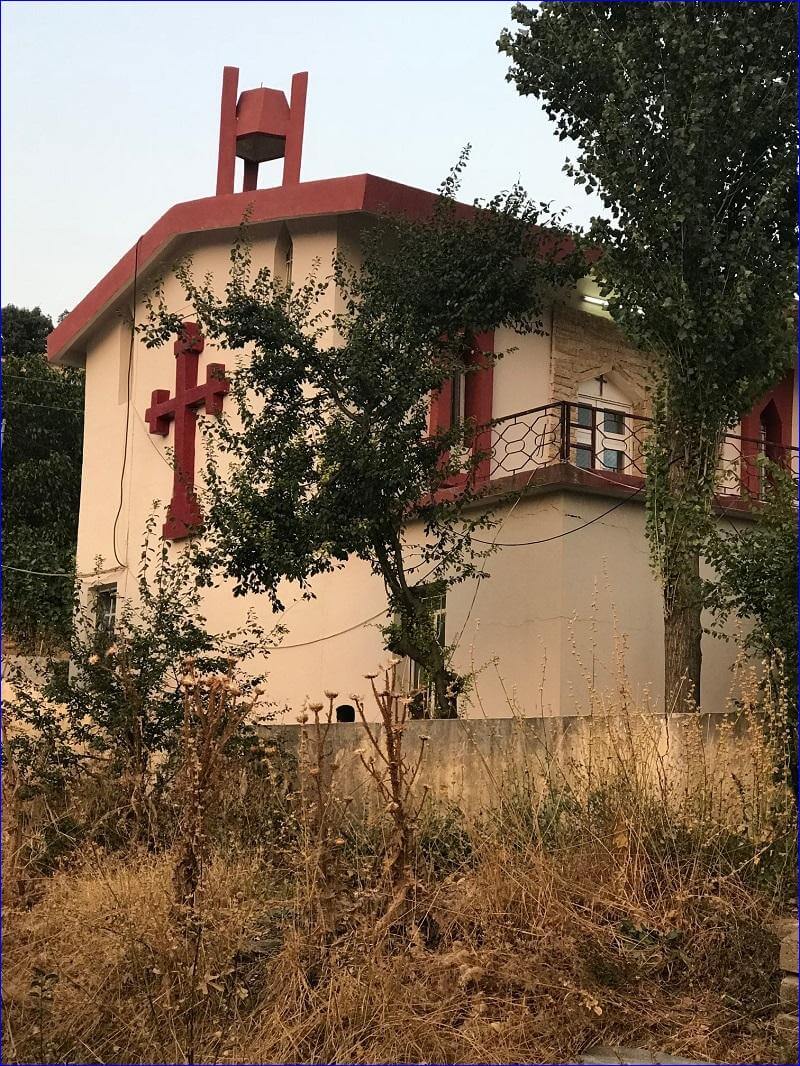AINA) — Father Athanasis Toma, who lives in Los Angeles, returned recently from a trip to Iraq, his country of origin. Fr. Athanasis is an Assyrian, a chorbishop in the Ancient Church of the East, with a diocese San Fernando, CA. Fr. Athanasis was happy to visit Iraq, but is gravely concerned over the developments in that country, particularly about the situation of Assyrians, the indigenous people of Iraq.
According to Father Athanasis, there are many challenges that Assyrians are facing in Iraq, including security, land seizures and Kurdish discrimination and marginalization of Assyrians in the north.
The following is an interview with Fr. Athanasis conducted by Sabri Atman, the director of the Assyrian Genocide Research Center, based in Sweden.
Can you tell us about your visit to Iraq?
This was my second visit to the homeland within six years since leaving the country 42 years ago. It was a short but very sad visit because of the conditions and the unfair treatment of our people back home.
Were you surprised about what you saw or you were already aware of the current situation?
Overall I had heard about the situation and seen some posting on social media, but being with the people on the ground, it gives more in depth about their life, and the issues they face on daily bases.
What kind of challenges are Assyrians facing today in Iraq?
Our people are facing many challenges. The security issue of their lands and the unfair treatment of our young generation, students have no hope of good opportunities after graduation. The confiscating of lands continues. The discrimination in prioritizing the fulfillment of our village’s needs, which can be as simple electricity, water, water wells, and schools.

Do Assyrians still have hope in their home or they want to emigrate?
The message I got was is that people have lost hope and they are looking to emigrate to the west.
How is the Assyrian relationship with the Kurds and others?
As we know, Assyrians always want to live in peace but cautiously with their neighbors, regardless of their ethnicity. They respect their neighbors but they truly fear them also, since what happened to them in the recent years with ISIS.
Related: Timeline of ISIS in Iraq
Related: Attacks on Assyrians in Syria By ISIS and Other Muslim Groups
Are the Kurds seizing the Assyrian land?
Indeed, they are slowly steeling lands, building homes in areas not belonging to them. In other words, confiscating Assyrian lands mostly in villages that are not heavily populated or occupied by Assyrians throughout the year.
Is the occupation of the Assyrian land inadvertent or is it a systematic policy by the Kurdish Regional Government?
In my view, it’s a systematic policy. The reason being, you hear the Kurds saying to their Assyrian neighbors “why should I purchase your property, when I can get it for free once you leave.” This means they are aware of what they are doing and they are applying all kind of pressure on our villages, so our people will abandon their homes.
What is the expectation of the Assyrians living in their homeland from the Assyrians in the Diaspora, how can we help them?
They are truly depending on our people in the Diaspora to be their voice. I believe we owe to them by being more active and knocking on doors here in Washington and around the world.
Their cry and our effort so far have fallen on deaf ears. We must find a solution, a nation that cares about our case. But most of all, we need to stand united and tear down the walls that divide us as a nation. That will be the greatest help to them.
Is any humanitarian organization helping them?
Very few humanitarian organizations are left. Most of them have left the country.
Do you think as Assyrians and as Christians we have any future in the Middle East and particularly in Iraq?
It’s a question that we need to be very honest with ourselves about. If we are not united and if conditions continue as they are, I believe we will diminish and soon not many will be left. Our lands, language, history and traditions will be all gone.


İlk yorum yapan siz olun